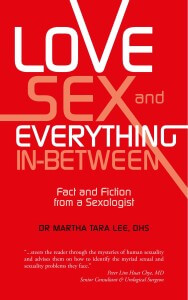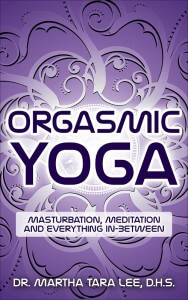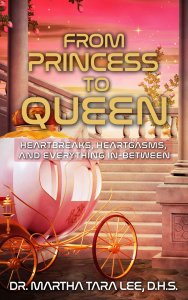
The history of birth control spans millennia, beginning with ancient methods where people employed various strategies to prevent pregnancy. These methods included using animal intestines or other materials as barriers and utilizing herbal remedies for inducing abortion (Smith, 2018).
Condoms, a form of barrier contraception, trace their origins to ancient civilizations where animal bladders or intestines were first used. In the 19th century, the invention of rubber condoms marked a significant advancement in contraceptive technology (Jones, 2007).
The development of hormonal birth control pills in the 20th century marked a revolution in family planning. The FDA’s approval of the first oral contraceptive pill in 1960 enabled women to have unprecedented control over their reproductive choices (Smith, 2018).
Alongside condoms and oral contraceptives, various other birth control methods have emerged over time, including intrauterine devices (IUDs), diaphragms, and contraceptive implants. These options provide diverse choices for individuals seeking effective contraception tailored to their needs (Jones, 2007).
The evolution of birth control has profoundly impacted sexual health and reproductive rights globally. Access to safe and effective birth control methods has empowered individuals to plan families and avoid unintended pregnancies, contributing to reduced maternal mortality rates and improved overall health outcomes for women (Smith, 2018).
However, throughout history, access to birth control has been fraught with challenges, with opposition from religious and political groups. Despite these obstacles, the availability of birth control remains crucial for advancing sexual health and reproductive rights worldwide (Jones, 2007).
Reflection Questions
These questions are designed to engage you in thinking critically about the historical and contemporary significance of birth control, encouraging reflection on its impact on society, rights, and personal experiences.
- Reflect on how access to modern birth control methods might have changed societal norms around family planning over the past century.
- Consider the ethical and moral debates surrounding birth control throughout history. How do you think these debates have shaped public policy and influenced access to contraception?
- Imagine a world without modern birth control options. How do you think society might be different today in terms of family sizes, women’s rights, and overall public health outcomes?
- Compare and contrast the attitudes towards birth control in different cultures and regions of the world. What factors do you think contribute to these variations?
- Discuss the role of technological advancements in the development of birth control methods. How have innovations in medical science expanded contraceptive options and improved efficacy?
- Explore the impact of birth control on gender equality and women’s empowerment. How do you think increased control over reproductive choices has affected women’s participation in education, careers, and economic opportunities?
- Consider the future of birth control technologies. What advancements or improvements would you like to see in contraceptive options moving forward?
- Reflect on personal experiences or stories you’ve heard about the impact of birth control on individuals, families, or communities. How have these stories shaped your understanding of reproductive rights and sexual health?
For personalized guidance on navigating birth control options and enhancing sexual health, do consult us at Eros Coaching. Together, we can explore strategies to support your reproductive choices and promote overall well-being.
References:
Jones, A. B. (2007). A history of contraception: From antiquity to the present day. Cambridge, UK: Polity Press.
Smith, J. K. (2018). Birth control: A history. New York, NY: Monthly Review Press.
About Dr. Martha Tara Lee
Dr. Martha Tara Lee has been a passionate advocate for positive sexuality since 2007. With a Doctorate in Human Sexuality and a Masters in Counseling, she launched Eros Coaching in 2009 to help individuals and couples lead self-actualised and pleasurable lives. Her expertise includes working with couples who have unconsummated marriage, individuals with sexual inhibitions and discrepancies in sexual desire, men with erection and ejaculation concerns, and members of the LGBTQIA+ and kink communities. Dr. Lee welcomes all sexual orientations and is available for online and face-to-face consultations. Martha speaks English and Mandarin.
She is the only certified sexuality educator by the American Association of Sexuality Educators, Counselors and Therapists (AASECT) in the region (as of 2011) and is also an AASECT certified sexuality educator supervisor (as of 2018). She strives to provide fun, educational, and sex-positive events and is often cited in the media including Huffington Post, Newsweek, South China Morning Post, and more. She is the appointed Resident Sexologist for Singapore Cancer Society, Of Noah.sg, OfZoey.sg, and Virtus Fertility Centre. She is the host of radio show Eros Evolution for OMTimes Radio. In recognition of her work, she was named one of ‘Top 50 Inspiring Women under 40’ by Her World in July 2010, and one of ‘Top 100 Inspiring Women’ by CozyCot in March 2011. She is the author of Love, Sex and Everything In-Between (2013), Orgasmic Yoga: Masturbation, Meditation and Everything In-Between (2015), From Princess to Queen: Heartbreaks, Heartgasms and Everything In-Between (2017), and {Un}Inhihibited (2019).
You can read the testimonials she’s received over years here. For her full profile, click here. Email her here.







